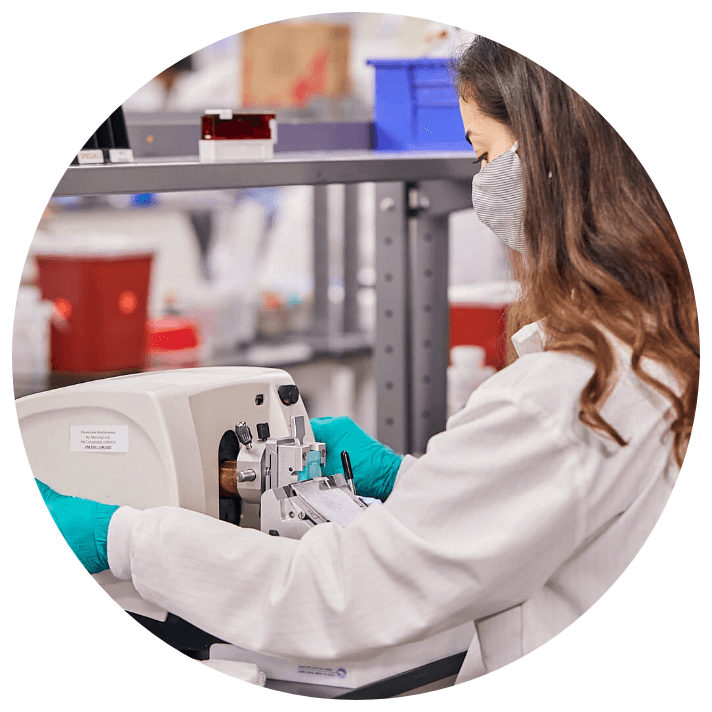
Precision testing options for pathologists
NeoGenomics testing solutions have been developed to give you choices for oncology diagnostics. We enable pathologists to form a complete cancer diagnosis picture with a suite of tests that can identify a range of biomarkers, genomic alterations, and disease-specific markers for a particular disease state. Our pathology solutions support both routine and complex cases, offering high-sensitivity methods for tumor profiling and cancer classification for a particular disease state. We regularly update our test menu to provide testing capabilities that align to the latest evidence and guidelines. As cancer evolves, so do we.

Tech-only services
NeoGenomics tech-only services provide client pathologists with multiple opportunities to participate in the diagnostic process and offer professional component services. While NeoGenomics handles the technical components — such as test-specific sample preparation and processing in our labs — client pathologists can view and analyze tech-only results as soon as testing is complete through NeoLINK®, our online platform for case review and reporting. Our pathology lab solutions offer flexibility, supporting in-house pathology workflows and providing seamless access to high-quality diagnostic data. We frequently collaborate with pathology practices across the following modalities:
- Flow cytometry
- Fluorescence In Situ Hybridization (FISH)
- Solid-tumor FISH (including bladder cancer FISH)
- HemeFISH® (hematopathology single probes and panels)
- Immunohistochemistry (IHC)
- In situ hybridization (ISH)

Consultative services
NeoGenomics provides turn-key services that identify appropriate pathology lab methodologies for internalization, assist in the unification of reference lab solutions, and support the optimization of patient care. Our consultative expertise includes workflow optimization, biomarker-driven test selection, and integration of precision oncology diagnostics into clinical practice. We deliver a multi-phased, customized lab internalization strategy and ongoing technical and quality assurance services.